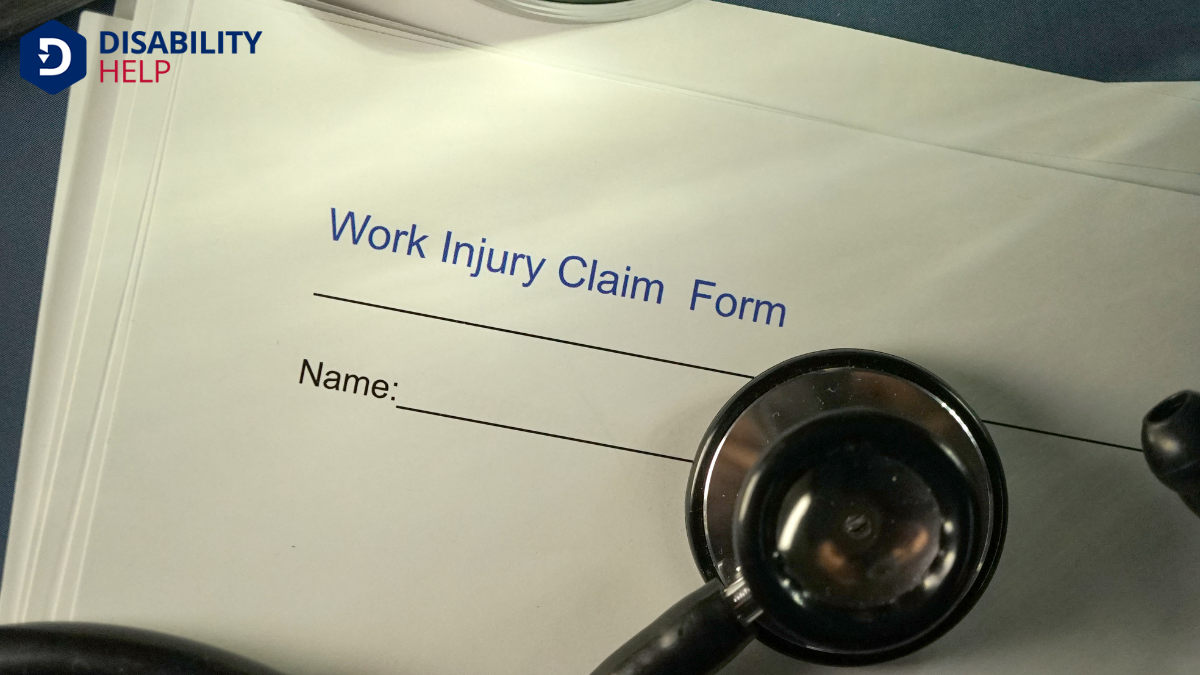When it comes to managing the workers' comp payout process, it's important to understand how these benefits actually reach you. Typically, workers' comp payments are disbursed on a weekly or bi-weekly basis, similar to receiving a paycheck. These payments usually represent a portion of your average weekly wage, but how exactly is this calculated? And what determines whether you get a direct deposit or a check? Let's explore what you need to know.
Key Takeaways
- Workers' comp benefits are typically paid out on a weekly or bi-weekly basis.
- Payments can be received via direct deposit or checks, depending on state-specific options.
- The benefit amount is usually a percentage of the employee's average weekly wage.
- State-specific caps may limit the maximum amount payable for workers' comp benefits.
- Understanding the payment process helps employees manage expectations and finances during recovery.
Understanding Workers' Compensation Basics
When it comes to understanding workers' compensation basics, you'll find that it's fundamentally a form of insurance providing wage replacement and medical benefits to employees injured on the job.
I remember when I first learned about it, I realized it's vital for anyone working in environments where injuries might occur. It's not just about covering medical expenses; it also guarantees you won't suffer financially if you're unable to work due to an injury.
The peace of mind this offers is invaluable. You'll appreciate knowing that workers' comp can cover a range of injuries, from minor accidents to more serious conditions.
It's essential for both employers and employees to understand these basics, making sure everyone's protected and informed about their rights and responsibilities.
Filing a Workers' Comp Claim

When you're ready to file a workers' comp claim, it's vital to understand the process and gather all necessary documentation.
I can't stress enough the importance of meeting filing deadlines to avoid missing out on your benefits.
Let's navigate these steps together to guarantee a smoother experience.
Claim Filing Process
Steering through the workers' comp claim filing process can seem intimidating, but understanding the vital steps makes it manageable.
First, report your injury to your employer immediately. Doing this guarantees that your employer can take appropriate action and helps protect your rights.
Next, seek the necessary medical attention promptly. Your health should always be your top priority, and timely treatment also supports your claim.
Finally, fill out the required workers' compensation forms accurately and submit them on time. Keeping track of deadlines is essential to avoid any unnecessary delays in your claim.
- Report your injury to your employer immediately.
- Seek prompt medical attention.
- Fill out and submit workers' comp forms accurately and on time.
These steps pave the way for a smoother claims process.
Necessary Documentation Requirements
Maneuvering the workers' comp claim process requires gathering specific documentation to ascertain that your case is well-supported.
First, make sure you have a detailed medical report from your healthcare provider that explains your injury and necessary treatments. This report is vital for establishing the connection between your work and your injury.
Additionally, collect any accident reports filed with your employer, as they describe the incident's circumstances. You should also keep copies of any correspondence between you and your employer or insurance company concerning the claim.
Documents like pay stubs or employment contracts might be needed to prove your wage details. Organizing these papers not only strengthens your claim but also helps streamline the process, making it easier to receive the compensation you deserve.
Filing Deadlines Importance
Understanding the importance of filing deadlines in workers' comp claims is vital to securing your benefits. When you’re injured at work, acting quickly is essential. Missing these deadlines can jeopardize your claim and delay or even deny your benefits.
Here’s what you need to keep in mind:
- Report the Injury Promptly: Notify your employer as soon as possible. This usually means within a few days of the incident.
- File the Claim Timely: Each state has specific deadlines for submitting your claim, often ranging from 30 to 90 days.
- Consult an Expert Early: Seek guidance from a workers' comp attorney or advisor to guarantee you’ve met all necessary deadlines and requirements.
Understanding and adhering to these timelines can be the difference between receiving timely benefits and facing unnecessary challenges.
State-Specific Regulations and Guidelines
While managing the complexities of workers' comp payouts, it’s important to recognize that each state has its own set of regulations and guidelines. Steering through these differences can be intimidating, but understanding them is vital to ensuring fair compensation.
For instance, states may vary in how they define a work-related injuryAn injury that occurs in the course of employment, potentially leading to temporary or permanent dis... or illness. Some require a specific waiting period before benefits kick in, while others might have unique caps on compensation amounts.
I recommend checking your state's labor department website for detailed information. Remember, missteps due to unfamiliarity with local rules can delay your benefits.
Each state's guidelines aim to protect workers like you, so being informed helps you advocate for your rights effectively. Always stay updated on any changes to these regulations.
The Role of Employers in the Process
As an employer, I'm responsible for promptly reporting any workplace injuries to guarantee the workers' comp process begins smoothly.
It's vital to manage employee claims efficiently, as this not only supports the injured worker but also helps maintain trust and transparency.
Let’s explore how these responsibilities shape the overall experience for both employers and employees.
Employer's Reporting Responsibilities
Employers play an essential role in the workers' compensation process, especially when it comes to reporting responsibilities. Quick and accurate reporting is vital for guaranteeing employees receive timely benefits. When an incident occurs, I must act promptly to initiate the process. This involves gathering and reporting detailed information about the incident to the insurance carrier or relevant state agencyThe capacity of individuals with disabilities to act independently and make their own choices..
Here are some key responsibilities I focus on:
- Accurate Documentation: I guarantee all details of the incident are precise and complete.
- Timely Submission: I adhere to deadlines, often within 24-48 hours, to prevent delays in processing claims.
- Communication with Insurers: I maintain open lines of communication with the insurance provider to facilitate smooth processing.
Understanding these responsibilities helps guarantee a seamless workers' comp experience.
Managing Employee Claims
Steering through the intricacies of managing employee claims can be complex, yet it's a critical aspect of the workers' compensation process. As an employer, I must guarantee that each claim is handled promptly and efficiently.
First, I make certain to maintain open communication with the injured employee, offering support and guidance. This helps in building trust and guaranteeing they feel valued.
I also need to collaborate closely with our insurance provider, providing them with accurate and timely information about the incident. This collaboration helps in avoiding delays and guarantees the claim is processed smoothly.
Finally, I stay informed about any legal requirements and changes in regulations to make certain I'm compliant and that the process is fair for everyone involved.
Insurance Companies and Their Responsibilities

When managing workers' compensation claims, it's vital to understand the responsibilities insurance companies have in this process. They play an important role in ensuring that injured workers receive the benefits they're entitled to.
I've learned that insurance companies must:
- Investigate Claims: They need to thoroughly assess the validity of each claim, ensuring all necessary documentation and evidence are collected.
- Determine Eligibility: It's their job to evaluate whether the employee's injury is covered under the policy terms and conditions.
- Process Payments: Once a claim is approved, insurance companies are tasked with the timely disbursement of the appropriate benefits to the injured worker.
Types of Workers' Comp Benefits
Workers' compensation benefits come in several forms, each designed to address the specific needs of injured employees.
When I think about these benefits, I consider medical coverage first. It pays for necessary treatments, from doctor visits to surgeries, ensuring you get the care you need without financial strain.
Temporary disability benefitsFinancial assistance provided to individuals who are unable to work due to a disability, such as Soc... replace a portion of your lost wages while you recover and can’t work. If your injury leads to permanent issues, permanent disability benefits offer long-term financial support.
Vocational rehabilitationServices that help individuals with disabilities prepare for, obtain, and maintain employment. helps you retrain for a new job if you can’t return to your old one. Finally, death benefits provide financial aid to your family if the worst happens.
Understanding these options empowers you to navigate your situation more effectively.
Calculating Benefit Amounts
Determining how much you'll receive in workers' comp benefits can seem challenging, but breaking it down makes it manageable.
First, the calculation begins with your average weekly wage, which is typically based on your earnings before the injury. This forms the foundation for your benefits.
Next, the benefit rate is usually a percentage of this average wage, often around two-thirds, but it can vary by state.
Finally, caps or limits might apply, restricting the maximum amount payable to you.
Here's a quick breakdown:
- Average Weekly Wage: Consider your earnings before the injury.
- Benefit Rate Percentage: Often around two-thirds of your average wage.
- State-Specific Caps: Maximum limits on benefits may differ by location.
Understanding these factors helps you anticipate your potential benefits accurately.
Payment Methods and Schedules

While maneuvering through the workers' comp process, it's essential to understand how and when you'll receive your benefits.
Typically, payments are made weekly or bi-weekly, mimicking a regular paycheck. This consistency helps you manage your expenses without worry.
You'll likely receive funds via direct deposit or a check, depending on what your state offers and your preference. Direct deposits tend to be faster, ensuring you have timely access to your money.
Navigating Disputes and Appeals
When you're dealing with workers' comp claims, disputes and appeals can be a frustrating reality. I've walked this path, and I know how overwhelming it can feel.
Maneuvering these challenges requires patience and understanding. Start by gathering all relevant documentation to support your claim. This step is essential for presenting a strong case if your claim gets denied.
- Understand the process: Familiarize yourself with your state's specific procedures for filing appeals.
- Seek guidance: Consider consulting with a workers' comp attorney who can offer expert advice and represent your interests.
- Stay organized: Keep meticulous records of all correspondence, medical reports, and any communication related to your case.
Conclusion
Maneuvering through workers' comp can be confusing, but I hope this guide has clarified the essentials for you. Remember, understanding how claims are filed, knowing your state's regulations, and being aware of employer and insurance responsibilities can ease the process. Calculating your benefits and knowing the payment methods help guarantee you get the support you need. If disputes arise, don't hesitate to seek help. You're not alone in this journey—stay informed and advocate for your rights.






